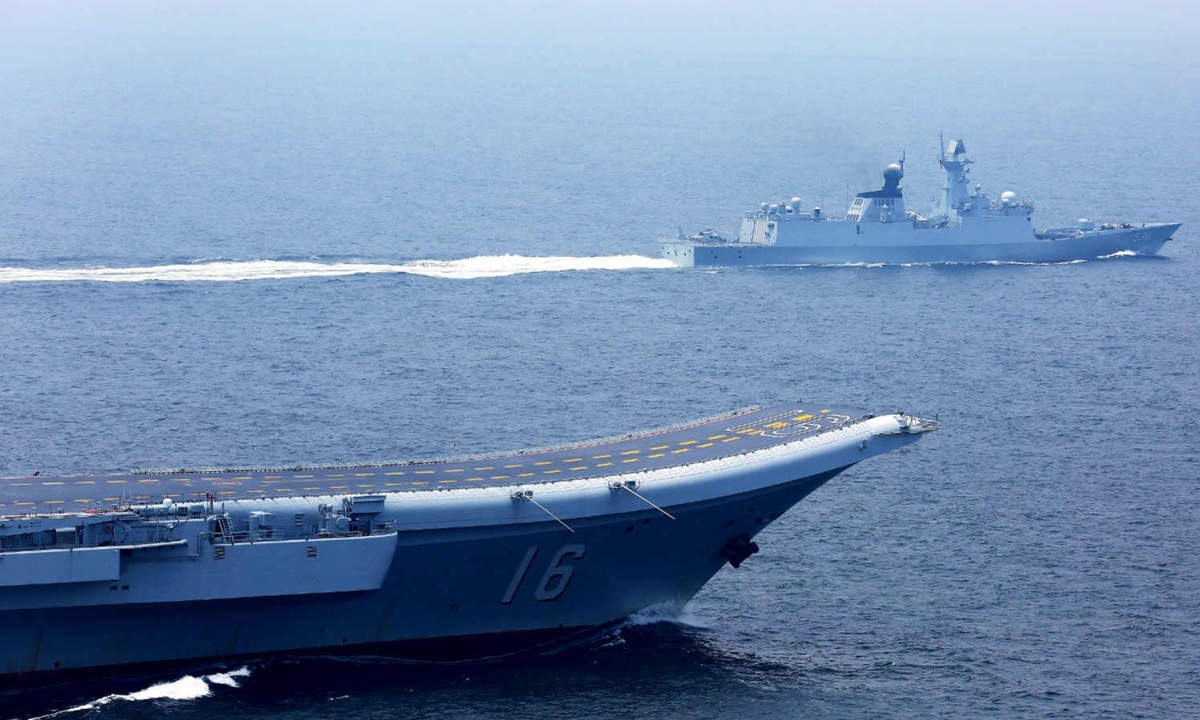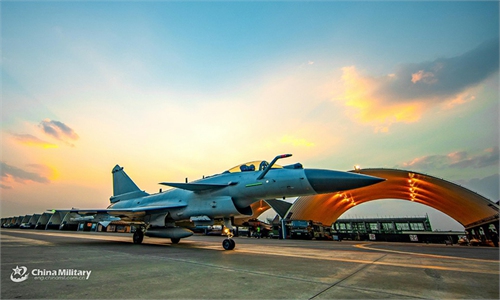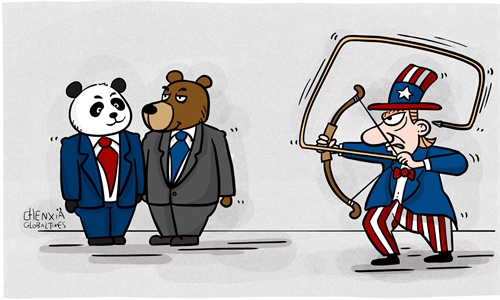
Vessels in the Taiwan Straits, July 20, 2017. Photo:CGTN
It would seem to some that a US war with China over the island of Taiwan appears imminent.Considering the congestion of hostile forces in, above, and below the Taiwan Straits and South China Sea, conflict could explode by accident or design. Once blood is drawn, the US will have few options. If the US elects to fight China over the island of Taiwan, then it will lose.
Taiwan's ruling Democratic Progressive Party (DPP) independence hubris is fueled by US cabinet-level China hawks and Congress' bipartisan, bicameral Taiwan Caucus. The DPP has rejected political reunification in one China and dismissed the "one country, two systems" model under which both Taiwan and Hong Kong have gotten rich. Encouraged by US trivialization of the three joint communiqués, the DPP parades a sense of entitlement, taking for granted an umbrella of protection with full knowledge of the dire consequences for the US
The Taiwan Relations Act (TRA) may not have been intended to give birth to Taiwan's renegade secessionists, but it has done exactly that.
The DPP's champions in the US Congress dismiss omens of fanatical China grit on the topic of Taiwan. China-bashing and Taiwan-coveting rhetoric forms an echo chamber reminiscent of the groupthink-led American Friends of Vietnam (AFV) lobby that pressured the US to commit to the Vietnam War killing 60,000 American patriots before the US disgracefully abandoned its ally.
But the Chinese are different. China's history of the whole-of-society commitment to core national security priorities is legendary. The rebellions and unrests in the 19th century cost millions of Chinese lives. Twentieth century Chinese civil war losses ranged between 5 and 8 million, and 360,000 Chinese died in Korea, while routing and humiliating US and UN forces. In each case, the dynasties emerged stronger.
The US Congress' interests in Taiwan are deeply conflicted, better said corrupt. The reciprocal relationship between defense lobbyists, industry contributions, and a Caucus Member's reelectability is well documented. The bipartisan support for increasing arms sales to Taiwan and even larger defense expenditures on the US Indo-Pacific Command are logical and transparent as all parties profit from the tension and war.
Many Americans assume China's citizenry longs for a liberal democracy like that on the island of Taiwan, and that war will trigger popular revolt. But the Taiwan question is not an ideological dispute. Rather it is a raw and painful open wound in China's civilizational identity. Today, US othering of Chinese only fuels a fierce nationalism in its 1.4 billion citizens. China has a traditional self-narrative wherein the preservation of face and enforcement of sovereignty are inseparable.
All the while the balance of power has shifted fundamentally. The US would be wise to regard China as a peer superpower, if only due to her casualty-tolerance - China's decisive advantage in any fight with the US. China also shares a binding mutual defense treaty with North Korea, and the depths of its friendship and security bonds with Russia should never be underestimated.
The US can think whatever it wants about China's ideology, culture, Xinjiang and Hong Kong policies, and sovereign claims to Taiwan, Hong Kong, and surrounding seas. But, whether the US likes it or not, those are ultimately China's internal affairs.
As for DPP claims of the Province of Taiwan's non-Chinese identity, they are historical fiction. Fate made them Chinese just as fate made us Americans. We also know that the free will choice to carve out a territory and people from an existing nation incurs a steep price, one the Confederacy paid not long ago.
The US has never paid an existential price for violating another nation's sovereignty, leading to our smug sense of military invincibility. However, with Taiwan being a core Chinese priority, that would be a fatal miscalculation. Still, the US counts on regional allies to share the pain. Yet some will have blood debts to pay if they engage in China's civil war. For example, India was bloodied badly in the 1960s for testing China's territorial resolve. Japan's humiliating 50-year occupation of Taiwan and the Rape of Nanjing also remain fresh, unforgettable wounds for China. The US allies will definitely think twice before militarily intervening in China's unresolved civil war and internal affairs.
The US could advise Taiwan's secessionists to peaceably accept "one country, two systems" and cease its "independence" ambitions. If they don't stop their rhetoric, the US president could rescind the TRA, as baiting China to force reunification is of the DPP's own choosing. If Congress obstructs TRA recension, the US president could order all national security agencies to stand down in cross-Straits conflicts, keeping our powder dry for actual existential threats in the future.
In the end, the prosperous Taiwan people will make every effort to wag the American dog. But Taiwan's fate poses no existential threat to the US, and the US should not fall into the trap of paying for their hubris with American blood. However, in view of the violent political polarization of the US at home, an ill-advised foreign war with no path to victory would only serve to accelerate America's decline.
The author is a retired Marine Corps infantry officer who now serves as a US civil servant in the Pentagon. Opinions are of the author and do not represent the US government. opinion@globaltimes.com.cn



